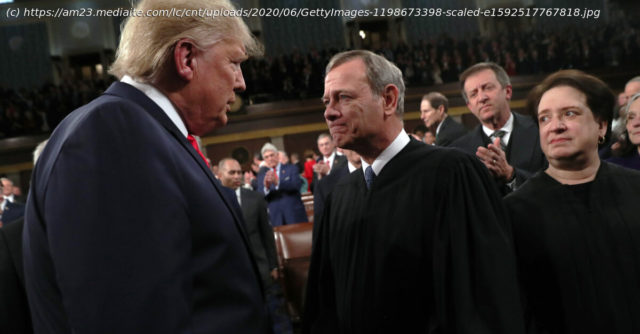Ultimately, Chief Justice Roberts, a conservative himself, is not worried about having a conservative court. The Court has been conservative leaning for decades.
Chief Justice John Roberts wrote the majority opinion in the matter of Department of Homeland Security, (DHS) et. al., v. Regents of the University of California, et. al., which most people know as the case dealing with the legality of the Deferred Action for Childhood Arrivals (DACA). President Barack Obama created DACA by executive order in 2012. DACA allows individuals illegally brought to the country as children a renewable two-year period of deferred action from deportation and allows them to become eligible for a work permit in the U. S. President Donald Trump made a campaign promise to reverse DACA once he became president. Through a declaration that DACA was illegal by then-Attorney General Jeff Sessions and a rescission memorandum by Acting DHS Secretary Elaine C. Duke, Trump delivered on that promise in 2017.
The majority of the Supreme Court just overturned Trump’s action, with the Chief Justice writing the opinion. We frame the decision’s larger implications through the lens of Justice Roberts, who, as chief justice, may find himself as the fifth vote for the majority on several key issues.
Roberts Will Not Reward Donald Trump’s Impulsive Approach to Governing
The challenges to DACA in lower courts claimed that DHS’s decision to rescind DACA was arbitrary and capricious in violation of the Administrative Procedure Act (ACA), which governs the way federal administrative agencies propose and establish regulations. Even as the Trump administration added other reasons to justify its action through a permanent DHS Secretary (Kirstjen M. Nielsen), the Courts pointed out that its judicial review of agency action is limited to the grounds that the agency invoked when it first took the action.
Roberts, per the opinion, stated that the wisdom of DACA (either having it or not) “is none of [the Court’s] concern.” The Court only sought to address whether DHS provided a “reasoned explanation for its action,” as procedurally required. Roberts stated that “the agency failed to consider the conspicuous issues of whether to retain forbearance (deferred action) and what if anything to do about the hardship to DACA recipients.
Домой
United States
USA — Criminal Here’s What the Supreme Court’s DACA Decision Tells Us About Chief Justice...






